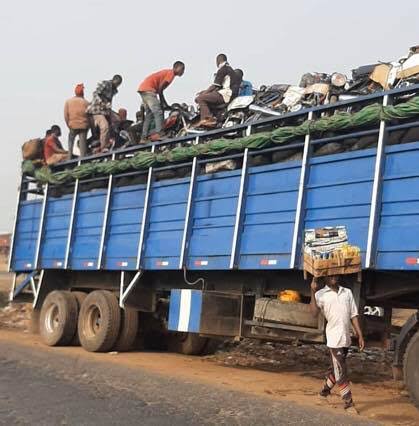Transporters Warn Nigerians To Expect Increase In Food Prices in December

Nigerians are facing increasing hardship, and foodstuff transporters, under the Amalgamated Union of Foodstuff and Cattle Dealers of Nigeria (AUFCDN), have warned that food prices will skyrocket in December.
In an interview with Vanguard, the National President of AUFCDN, Mohammed Tahir, explained that the rising costs of Premium Motor Spirit (PMS) and diesel, combined with daily extortion and double taxation on federal highways, are severely impacting foodstuff transporters.
Tahir said, “Each trailer-load of rice, beans, corn, and other commodities from Sokoto to Port Harcourt costs ₦2.25 million. The same amount is spent to transport goods to other parts of the South.”
He warned that the cost of food will escalate as the Christmas season approaches, worsening the already significant hardship Nigerians are facing. “The price increase will continue into the New Year,” he added.
The high transportation costs are compounded by double taxation, with local and state government revenue collectors setting up roadblocks, security agencies and “agberos” (street extortionists), and additional fees at markets. Tahir noted that regions such as the South-East, South-South, and parts of the South-West are particularly problematic, with reports of drivers and motor-boys being harassed and even beaten.
He also expressed frustration that the government has not engaged with foodstuff transporters to address these issues, despite their vital role in feeding the nation. “We have not received any invitation to discuss our challenges as major stakeholders in the food system,” he lamented.
Many members of the union have stopped transporting foodstuff due to the high cost of doing business. “How they are surviving is another issue,” Tahir said. “There has been no intervention for foodstuff transporters by any administration.”
Despite the severe difficulties, Tahir emphasized that the union does not want to go on strike, understanding the impact it would have on vulnerable Nigerians. “If we stop transporting foodstuff, it would paralyze the entire country,” he warned, urging the government to intervene urgently to alleviate their burden and ensure the continued flow of food supplies.

